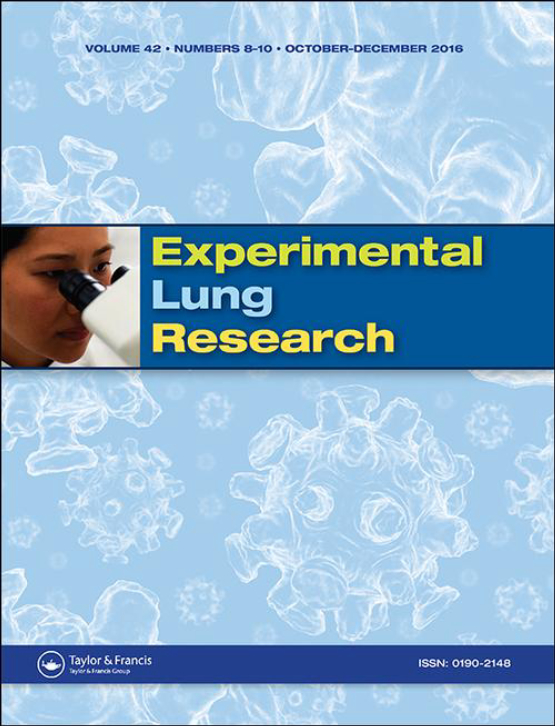Submit a Manuscript to the Journal
Experimental Lung Research
For an Article Collection on
Short term, Long term and Transgenerational Effects of Cannabis, Tobacco, and E-cigarette Use on Genes and Offspring
Manuscript deadline
30 August 2024

Article collection guest advisor(s)
Dr. Sarah Commodore,
Indiana University, Bloomington
[email protected]
Short term, Long term and Transgenerational Effects of Cannabis, Tobacco, and E-cigarette Use on Genes and Offspring
The use of electronic cigarettes (e-cigs) is a significant emerging public health problem. Over 9 million American adults, including women of childbearing age, are current e-cig users. Little, however, is known about the effects of fetal exposures to e-cig aerosols on organ development in the offspring and their progeny. The few studies with clinical models suggest that in utero e-cig aerosol exposures can induce epigenetic modifications, and this can increase the risk of developing pulmonary diseases. The emerging literature also suggest that in utero exposures to e-cig aerosols alter or delay normal fetal organogenesis and pose, possibly via epigenetic mechanisms, a risk for the development of chronic adult diseases, including asthma and heart disease. Notwithstanding, the mechanisms by which e-cig aerosols impair pregnancy outcomes and subsequently induce molecular, cellular, and physiologic changes on developing organs and in future generations are poorly understood. Several studies have shown that in the presence of environmental stimuli, airway reactivity can even differ in a sex-specific manner. Despite this, experimental models of e-cig exposures have not explored differences in the offspring due to maternal, paternal, or dual parental e-cig use. Given that the youth and young adults are the predominant population using e-cigarettes, longitudinal studies starting from the preconception period are needed to determine the long-term impacts of e-cig use on maternal, paternal, and both male and female offspring’s health.
The rationale for the approach in this Article Collection stems from the prenatal programming paradigm. A pregnant woman (F0 generation) carries the primordial germ cells of subsequent generations. This article collection will provide novel data on the characteristics of e-cig aerosol-mediated mechanisms of inflammation in various cardiopulmonary disease states. The goal of this Collection is to contribute to the characterization of specific factors accounting for inter-individual differences, and increased understanding of e-cig use and its impact on future progeny.
Review articles, letters, original research articles and editorials on respiratory tract anatomy, biology, developmental biology, toxicology, and pathology are welcome.
Sarah Commodore has a background in environmental health sciences with expertise in air pollution exposure assessment. She is also trained in respiratory health and environmental epidemiology. Her research combines environmental, preclinical, molecular, and clinical data to inform effective public health and regulatory interventions, and protection from long-term adverse effects.
https://publichealth.indiana.edu/research/faculty-directory/profile.html?user=scommod
Dr. Sarah Commodore has no conflicts of interest to disclose.
Benefits of publishing open access within Taylor & Francis
Global marketing and publicity, ensuring your research reaches the people you want it to.
Article Collections bring together the latest research on hot topics from influential researchers across the globe.
Rigorous peer review for every open access article.
Rapid online publication allowing you to share your work quickly.
Looking to Publish your Research?
Find out how to publish your research open access with Taylor & Francis Group.
Choose open accessSubmission Instructions
All manuscripts submitted to this Article Collection will undergo desk assessment and peer-review as part of our standard editorial process. Guest Advisors for this collection will not be involved in peer-reviewing manuscripts unless they are an existing member of the Editorial Board. Please review the journal Aims and Scope and author submission instructions prior to submitting a manuscript.